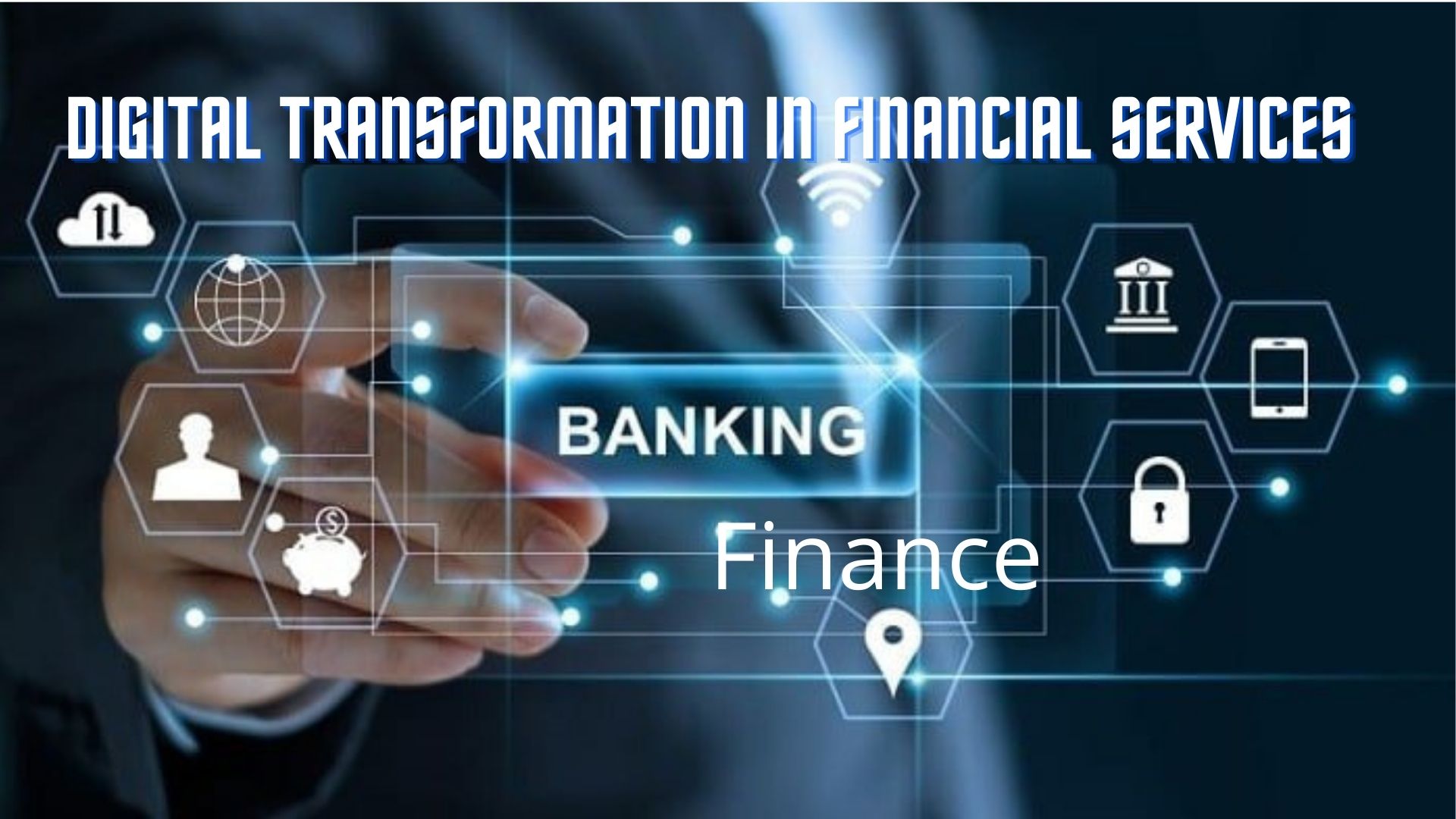As technology advances, there are more and more ways for businesses to go digital. The finance industry is no exception, with a variety of digital transformation trends popping up in recent years. In this blog post, we’ll provide a definition of digital transformation in finance, explore some of the most popular trends, and share some guides to help you get started.
Table of Contents
What is Digital Transformation in Finance?
Digital finance transformation is the process of using digital technologies to modernize financial services. The goal is to make financial services more efficient, effective, and accessible. This can be done by automating manual processes, improving customer interaction, and increasing transparency.

Here are some main changes that digital transformation has made in the finance sector:
Increased use of mobile banking
In recent years, there has been a shift from traditional banking to mobile banking. This trend is being driven by the increasing use of smartphones and the adoption of new technologies by banks. Mobile banking is more convenient for customers, as it allows them to access their account information and make transactions anywhere, at any time. In addition, mobile banking is more secure than traditional banking, as it uses biometric authentication and encrypted data.
The emergence of challenger banks
Challenger banks are digital-only banks that provide a customer experience that is smoother and more user-friendly than that of traditional banks. They also offer more attractive fees and rates.
The emergence of challenger banks is due to digital transformation in finance. As more and more financial transactions are conducted online, there is a need for banks that are designed for the digital age. Challenger banks are able to meet this need, and they are quickly gaining popularity among consumers.
Fintech solutions
Fintech companies provide a variety of digital services, from spending tracking and budgeting to customer service chatbots. With more and more financial institutions relying on Fintech solutions, these companies have been essential in driving the digitalization of financial services. Digital transformation is making finance more efficient and effective, and Fintech solutions are playing a key role in driving this change.
Digital investments companies
One area that is seeing significant change is investment management. Algorithm-based platforms are becoming more popular, as they offer investors a more hands-off approach. These platforms also tend to be more affordable than traditional investment companies.
Another popular digital financial service is online advice platforms. These platforms use algorithms to provide users with personalized recommendations on a variety of financial topics. The appeal of these platforms lies in their ability to offer unbiased advice that is tailored to the user’s individual needs.
Blockchain technology
The digital transformation of the finance industry is opening up new possibilities for the way people invest their resources and trade on markets. One of the most exciting aspects of this transformation is the role that blockchain technology is playing. Blockchain provides a new way to identify, record, and store assets digitally, as well as changes the way people invest their resources and trade on markets.

Tools to Accelerate Digital Finance Transformation
Blockchain
Blockchain is a technology that uses distributed ledgers to make transactions secure and data reliable. By enabling digital, real-time contracts, faster operations, and reduced costs of maintaining a central database, blockchain is transforming the way finance and accounting processes are conducted.
With better integration and governance, blockchain is able to provide a more efficient and effective way of conducting financial transactions. As a result, blockchain is playing a pivotal role in the digital transformation of finance.
Real-time data visualization
Real-time data visualization is one way that organizations are keeping up with the pace of change. It allows for the sharing of data and trends between key stakeholders in real-time, without the need for guesswork or worrying about the relevance of the information.
This accelerates decision-making and leads to more informed choices being made about the direction of the organization. It’s an essential tool for companies that want to stay ahead of the curve and ensure they are financially transformed successfully.
Robotic process automation (RPA)
The implementation of robotic process automation can have a significant impact on an organization’s ability to digitalize its finance function. RPA can automate repetitive and mundane tasks, freeing up employees to focus on more value-added activities.
In addition, RPA can help to improve accuracy and compliance by reducing the risk of human error. As organizations continue to digitalize their finance functions, RPA will play an increasingly important role in achieving efficiencies and scale.
AI-supported analytics
AI can help identify gaps and inconsistencies in financial data that may otherwise be overlooked. Then, AI can provide accurate and up-to-date expense reports, which is crucial for informed decision-making. Finance companies have forecasts based on past data and current trends, which can help organizations anticipate future needs and budget accordingly. AI-supported analytics is a powerful tool that can enable digital finance transformation by improving data quality, accuracy, and efficiency.
Trends of Digital Transformation in the Finance Industry
Paperless transactions
One of the most significant trends is the move toward paperless transactions. This has a number of advantages for both businesses and customers.
Firstly, paperless transactions are more efficient and easier to manage. Secondly, paperless transactions allow you to provide bespoke services to each customer’s individual needs. This is much better than taking a one-size-fits-all approach.
Workflow automation
Workflow Automation involves implementing a system with software robots that execute mundane and repetitive tasks instead of relying on people. For example, you can use a system to automatically code invoices according to your organization’s rules and then route them for approval. This would replace the need for someone to manually look at each invoice and code it accordingly before sending it off for approvals.
Digitization
Digitization offers many advantages over traditional methods, including increased safety, speed, and convenience. In addition, digitized processes are often more accurate than their manual counterparts. As a result, digitization is likely to have a major impact on the finance industry in the years to come.
Many businesses are already beginning to adopt digital technologies, and it is likely that this trend will continue to grow in the years ahead.
Artificial Intelligence – AI
Artificial Intelligence (AI) is a major trend driving digital transformation in the finance industry. With trained AI systems, financial service providers can identify patterns and automatically implement measures to eliminate unfavorable conditions. For example, machine learning can be used to detect fraudulent activities such as money laundering and credit card fraud.
Cloud services
Cloud services are a trend of digital transformation in the finance industry because more financial service providers are beginning to migrate their services and processes to the cloud. Cloud-based solutions offer more scalability, making it easier to keep up with increasing demand by customers. Also, it is more secure and cheaper to implement through cloud services than existing systems.
5 Steps to Plan for Digital Transformation in Finance Industry
Define digital finance transformation
Defining what digital and financial transformation mean for your organization is the first step on the journey. Financial transformation refers to the process of using financial tools and strategies to drive business growth. This may include things like streamlining financial processes, improving financial reporting, and launching new pricing models.

Evolve leadership roles
When leading a digital transformation in the finance industry, it’s important to consider how accounting and finance roles will evolve. The increasing use of automation and data analytics will automate many traditional accounting tasks. This will free up finance professionals to focus on more strategic tasks, such as data analysis and interpretation, forecasting, and identifying opportunities for cost savings.
Determine potential roadblocks
When embarking on a digital transformation journey, organizations in the finance industry face a unique set of challenges. To be successful, finance organizations must carefully consider all potential roadblocks and develop strategies to overcome them. With the right approach, digital transformation can be a powerful tool for driving innovation and growth in the finance industry.
Identify opportunities for automation
There are many opportunities for automation when doing digital transformation in the finance industry. For example, financial institutions can use automation to streamline customer on-boarding, processing of transactions, and management of financial data. In addition, automated machine learning can identify patterns and trends in data more quickly and effectively than human analysts.
Keep the proper mindset for transformation
It’s important to remember that transformation is not about adopting new technology for technology’s sake. Rather, it’s about rethinking how you do business in order to be more efficient, effective, and agile. This means looking at every process and asking yourself whether there’s a better way to do it using digital tools.
Wrapping up
The finance sector is evolving, and so do the strategies to stay ahead of the competition. By understanding digital transformation in finance, you can develop a plan that will help your company not only keep up but thrive in this new era. We hope this guide has been helpful and provided some valuable insights into what digital transformation means for the world of finance.
Are there any other areas you’d like us to explore? Please share your request for us right here!











